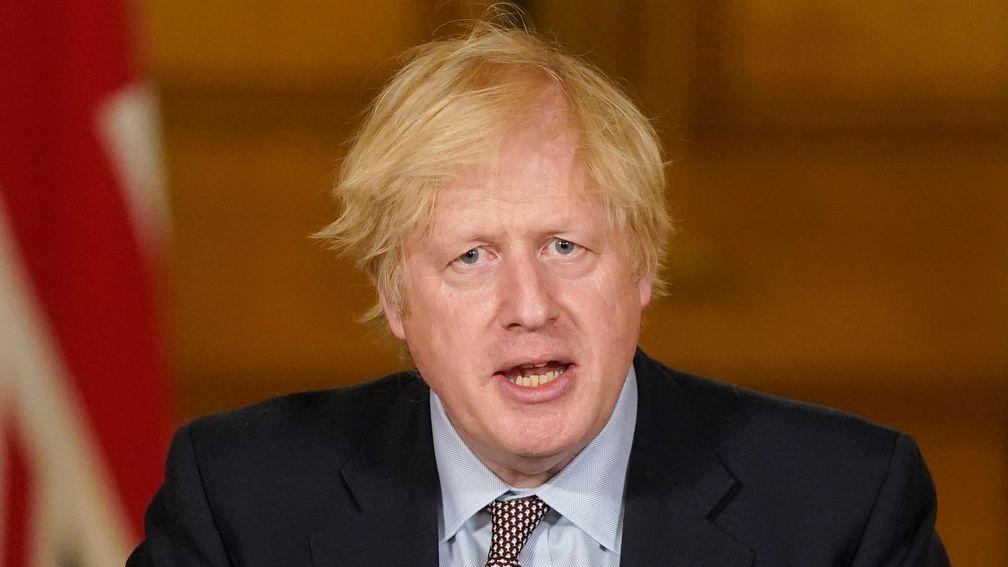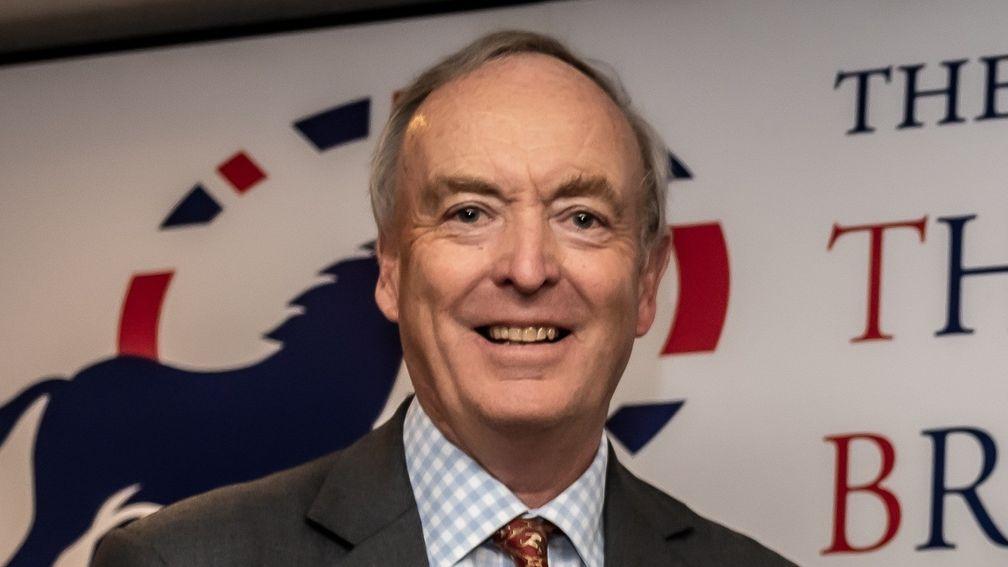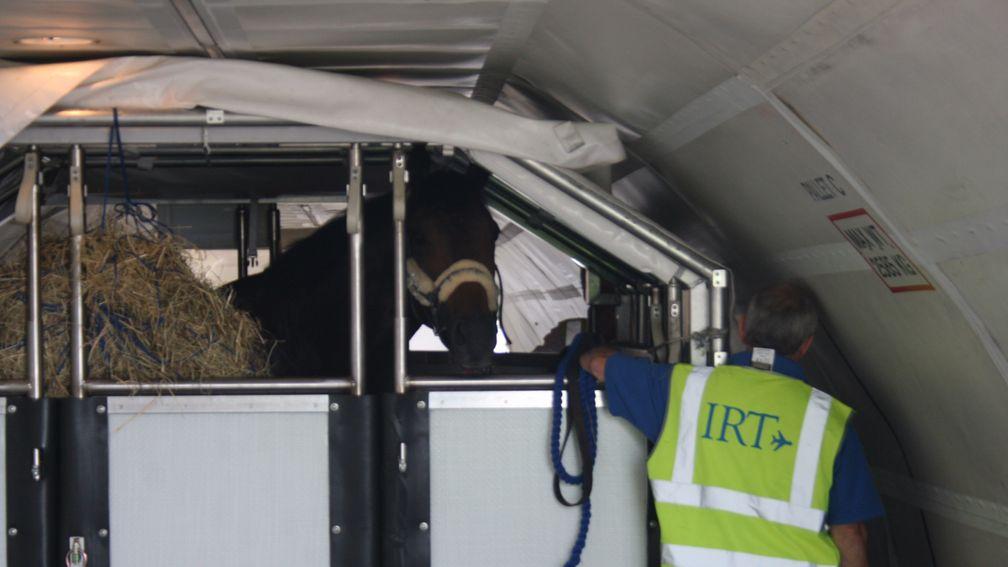Brexit deal agreed but advice remains to not travel horses in early January

Movement of horses into and out of the European Union from the United Kingdom in the opening weeks of 2021 should be limited despite a trade deal being agreed between the two parties, according to the group responsible for overseeing British racing’s response to Brexit.
The signing of a trade deal, which brings to an end Brexit negotiations ahead of the UK leaving the EU next Friday, was hailed as a “good deal for the whole of Europe” by UK Prime Minister Boris Johnson.
He said: “We have completed the biggest trade deal yet, worth £660 billion a year, a comprehensive Canada-style free-trade deal between the UK and the EU. I believe this is a good deal for the whole of Europe and for our friends and partners.”
Ursula von der Leyen, president of the EU Commission, said at a press conference: “It was a long and winding road but we have got a good deal to show for it. It is fair, balanced and the right thing to do for both sides.”
The Thoroughbred Industries Brexit Steering Group this month advised against travelling horses between the UK and the EU for the first two weeks of next month whether a trade deal was successfully negotiated or not with limited time to implement and work through the details of a deal with only a matter of days left until the transition period ends next week.

Julian Richmond-Watson, chair of the Thoroughbred Industries Brexit Steering Group, said on Thursday that news of the deal was “very welcome”, while the group also hailed the EU's recognition of the General Stud Book, but urged patience from racing's participants as the finer details of the agreement were worked through.
He said: “News of a free trade agreement being reached is very welcome to the British horseracing industry, which trades extensively with our European partners. It remains important for our participants to have clarity on the fine detail of moving horses and people from January 1, 2021. We would ask our industry to be patient whilst the detail is worked through.
“Even though we now have an agreement in principle between the UK and EU we want to ensure participants are aware that the process of moving horses will change significantly from the end of the transition period. It will be more complex administratively and is likely to be more expensive. As such, we would ask participants to ensure they are as up to date as possible with the latest industry and government guidance and seek the assistance of a horse transport professional if they are planning to move horses.
“We will, of course, continue to ask government and other relevant parties for clarity and communicate any information as soon as we are able to.”
Those travelling horses to the EU from the end of next week will need to prepare themselves for a number of changes to paperwork, including paying VAT and duty on horses and having additional proof animals are free of infection and have been based in the UK for at least 40 days prior to travelling.

The Brexit steering group emphasised that limiting travel in the opening weeks of January remained the best option. It said: “It remains the advice of the group not to try and move horses for at least the first two weeks of January unless absolutely necessary. This will allow time for agreements to be ratified and the new processes to be communicated to relevant officials here and in the EU.”
Richmond-Watson added: “The news that the General Stud Book will be recognised by the EU and that the UK has been listed as a third country is also positive, but there are some important matters on which we are still waiting for confirmation. We hope that an FTA being signed will increase the chances of swift resolution to these outstanding issues. With little time between now January 1, a period of disruption is likely.”
For the time being, issues around moving horses to the EU have been supplanted by widespread travel restrictions from countries on the UK due to the discovery of a mutant variation of Covid-19. The virus has forced large swathes of England, Wales and Scotland into lockdown measures, with the travel ban preventing the likes of Monalee making the journey from Ireland to run in the Ladbrokes King George VI Chase at Kempton on Saturday.
Read more:
Racing warned to avoid horse movement in first two weeks of 2021 due to Brexit
Digital passport proposed to allow for free movement of horses after Brexit
Monalee ruled out of King George after extension of Irish travel ban for Britain
Join Members' Club Ultimate and read tipping from the likes of Pricewise and Paul Kealy, all the big interviews and features, daily comment and news analysis - plus our Ultimate Daily newsletter. Click here to sign up.
Published on inNews
Last updated
- Join Racing Post Members' Club for the very best in racing journalism - including Patrick Mullins' unmissable trip to see Gordon Elliott
- Join the same team as Ryan Moore, Harry Cobden and other top jockeys with 50% off Racing Post Members' Club
- Racing Post Members' Club: 50% off your first three months
- 'It’s really exciting we can connect Wentworth's story to Stubbs' - last chance to catch master painter's homecoming
- The jumps season is getting into full swing - and now is the perfect time to join Racing Post Members' Club with 50% off
- Join Racing Post Members' Club for the very best in racing journalism - including Patrick Mullins' unmissable trip to see Gordon Elliott
- Join the same team as Ryan Moore, Harry Cobden and other top jockeys with 50% off Racing Post Members' Club
- Racing Post Members' Club: 50% off your first three months
- 'It’s really exciting we can connect Wentworth's story to Stubbs' - last chance to catch master painter's homecoming
- The jumps season is getting into full swing - and now is the perfect time to join Racing Post Members' Club with 50% off